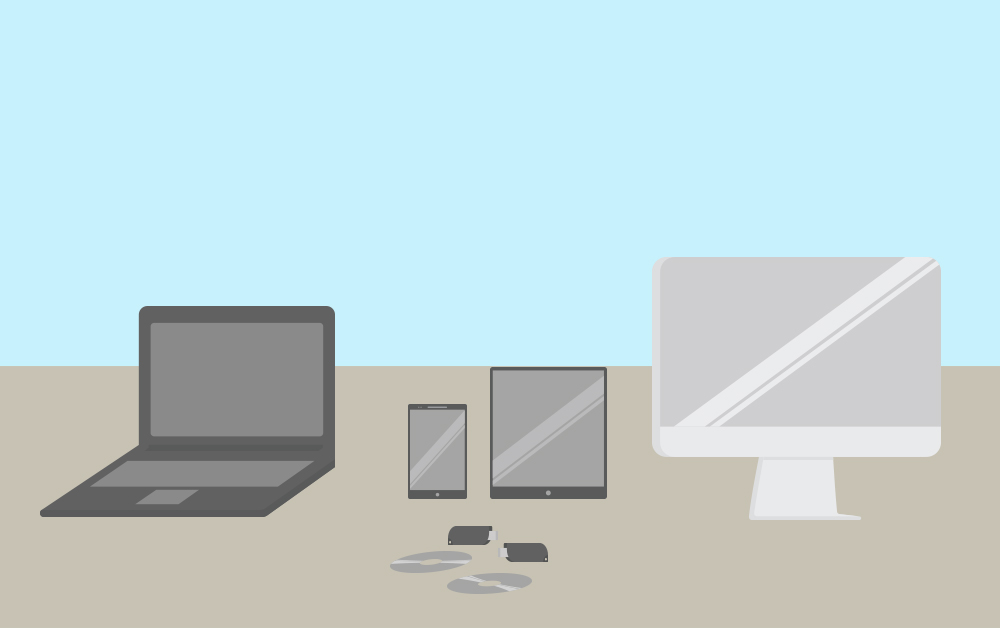Dealing with the loss of a loved one is always tough. Even tougher now with technology permeating our lives to the extent that it does. In addition to all of the usual arrangements, we now have a new set of items to sort through and deal with, some of which may not always be obvious. Today, we'll take a look at what you should be thinking about when dealing with the loss of a loved one.

Dealing with the loss of a loved one is a tough time to begin with. You need to go through personal effects, financial info and more all while in the process of grieving. You probably don't want to think about computers and technology. Unfortunately, we can no longer afford to overlook this now important subject. Here are some things that you will want to think about during this time.
Devices
The most obvious item on the list is to get together any digital devices that were owned or used. Devices like computers and laptops to cell phones and tablets. Digital cameras and recording devices are often overlooked but should also be added to this list. These devices should be put into a single collection which can be inventoried or matched against a list of receipts if necessary.
There's a variety of things that can be done with these devices ranging from dispersing them among family to donating to charity. However, it's important to ensure that before anything is done that these devices are properly triaged and wiped of sensitive information. This is especially true of devices like cell phones and PCs but should also be done with devices like cameras or even small things like flash drives.
Data
Speaking of data, the data on all of these devices should be looked at and triaged before removal. Certain types of data can make other processes easier while other types can be important for other people or organizations. Here's a small list of things to look for:
Photos and Video: In this day of digital cameras and cell phones there's a high probability that there will be photos and videos that can be retrieved. These items may have sentimental value but can also be personal and private which shouldn't fall into the wrong hands.
Banking/Financial Info: Also present can be banking or financial data from programs like Quicken, QuickBooks or older programs like Microsoft Money. This information can actually prove somewhat useful for dealing with a loved ones finances depending on how meticulously records were kept. It can also be very sensitive information that contains things like bank account numbers which should never be left on a system.
Work/Social Documents: Commonly there may be work-related or other types of documents. This data can be all over the map in terms of both purpose as well as location. Perhaps they were a farmer who have special field data saved in a program like Apex or maybe they were an officer in their church who helped create the programs or flyers. Generally, you should have a pretty good idea about what types of things to look for based on what activities that person was involved in.
Accounts and Subscriptions
This tends to be the biggest category to think about especially with older loved ones. Things like Facebook accounts need to be closed out. Online banking accounts will usually be closed when the accounts are closed however they should also be checked just to be sure. Email accounts should also be closed out however you will likely want to close these out last as having access to them may be required to deal with other accounts.
You will also want to think about subscriptions to digital goods and services. Things like Anti-Virus and Backup subscriptions are commonly auto-billed to a credit card or bank account as are entertainment subscriptions to services like Netflix or Amazon Prime. Make sure that these subscriptions are canceled out to prevent charges being stacked up and causing headaches further down the road.
Create a Checklist
All of this can be overwhelming to think about at first. However simple things like creating a checklist can greatly help with this process and ensuring that everything is set up straight. Fortunately, the way this article is structured should help provided a good basis for the checklist and the order to perform individual tasks. Of course, every situation is different so the most important thing is to do what works best for you. And if additional help is needed, we're always here to help.